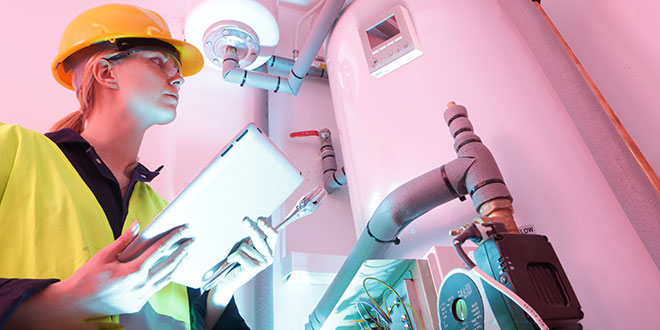Hot water—we use it every day, but most of us take for granted where that hot water comes from. Traditionally, your customers only had one option, a tank water heater, which heats and stores water in a tank until it’s needed somewhere in the house. In recent years, however, tankless systems have gained ground in popularity. Tankless heaters don’t store heated water, but rather heat the water on demand. Help your customers determine which is the right choice for their needs with these comparisons.
Energy Efficiency
According to the U.S. Department of Energy, tankless water heaters are 24 to 34 percent more energy efficient than storage heaters for households that use 41 gallons or less of hot water each day. Even homes that use more hot water each day, the tankless varieties are still 8 to 14 percent more efficient. For gas-fired tankless heaters, the pilot light can waste energy if it’s constantly burning.
Cost
Tankless water heaters cost more to purchase and install. On average, the cost to operate during a year was $245 for a gas tank heater and $195 for a gas tankless, according to Consumer Reports. Electric versions of both the tank and tankless water heaters cost more than gas because natural gas is generally less expensive than electricity.
Durability
On average, a tank water heater lasts 10 to 15 years, while the life expectancy of a tankless heater is closer to 20 years. Gas and electric tank heaters deliver consistent hot water when needed, while electric tankless heaters tend to be less reliable than gas tankless heaters.
 Hardware Retailing The Industry's Source for Insights and Information
Hardware Retailing The Industry's Source for Insights and Information








